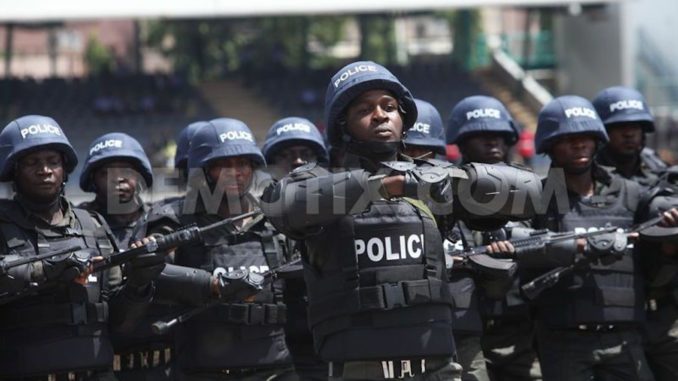
The Nigeria Police originated from the colonial initiative in 1861 following the annexation of Lagos. This institution was fundamentally established by the British colonialists to utterly combat and repress all attempted resistance from Lagos communities against the colonial administrators. Subsequently, the expansion of the colonialists’ majestic armpit to other geographical territories later known as the Northern and Southern protectorates led to the formation of constabularies in those local communities. The police played pivotal roles in subverting people’s resistance against colonial policy. The Egba crisis 1918, the 1927 Warri riot and the 1929 Aba women’s riot among other protests staged against the colonial exploitative and tyrannical policy met abrupt subjugation from the local police.
In 1930, the fragmented policing systems in all the local territories which summed up Nigeria were integrated into national policing system known as the “Nigeria Police Force” administered by an Inspector General of Police. The reformation was borne out of colonial administrative convenience. Likewise, in a bid to consolidate the police force against anti – colonial movements’ resistance. The Nigerian nationalists’ movements, Nigerian labour force, Nigerian journalists and human rights activists who stood against colonial despotism were subjected to brutality and dehumanization through the instrumentality of policing system. Basically, the Nigeria Police Force is a social – historical fabric of repressive state apparatus introduced during the colonial epoch.
Prior to the advent of colonialism, the policing system in each fragmented geographical territory which eventually constituted Nigerian territory was peculiar and without the application of excessive violence. In the Igbo land, the age – grades constituted the institution saddled with the maintenance of law and order in the community. Vocational guilds such as hunters and farmers were primarily responsible for crime controls in the Yoruba Empire. While the Hausa Emirate centralized political system placed internal security affairs in Dogari’s custody (Police head) who in turn selected able – boded men as law enforcement agents.
Nevertheless, the police force system introduced by the colonialists would have been a perfect mechanism to maintain social stability in this civilized age if successive Nigerian governments had restructured the institution for societal and human protection. Having attained political liberty, the country retained and incorporated colonial policing system to protect and preserve the interest of ruling elite. The police force served as a tool in the hands of successive Nigerian governments to silence dissenting voices and victimize political opponents.
The Nigeria Police Force has a track record of unleashing mayhem on harmless citizens. The recent indiscriminate and extra – judicial killing, brutalization and extortion of harmless Nigerians by the law enforcement agency are products of long – standing despotic political structure, social inequality and economic exploitation which are prevalent modus operandi in Nigerian system. Police brutality can’t be isolated from Nigerian social – political and economic structure. The Nigeria police have the effrontery to engage in unprofessional conducts because successive Nigerian political leaders condoned and engaged in criminality. In most cases, the police are employed to execute the deadly tasks.
The Nigeria police are privy to the fundamental human rights’ provisions under chapter 4 of the 1999 constitution, as amended. They are not ignorant of the part 2, Police Act which posited their primary duties as “maintenance of law and order, prevention and detection of crime and the protection of life and properties.” They understand that the application of firearms against persons “except in self – defense or defense of others against threat of death or severe injury or to prevent the escape of a person who has committed a serious or deadly crime while resisting their authority” is unprofessional and barbaric. No amount of extant laws, bills and reforms can effectively curb police brutality in Nigeria. The effective panacea to police malady is democratization of Nigerian polity and economy in a bid to promote democracy, social justice and human rights.
Binzak Azeez writes from the Faculty of Law, Obafemi Awolowo University.
END

Be the first to comment